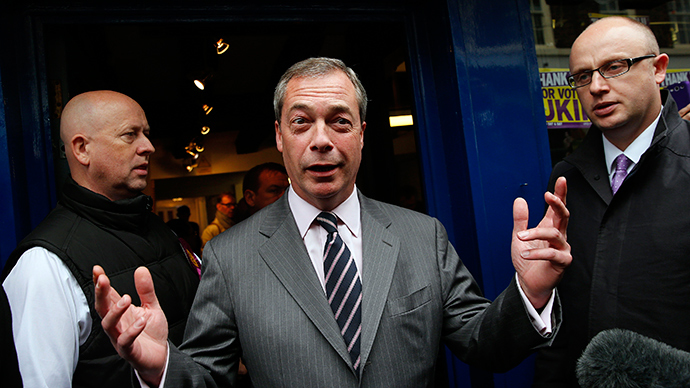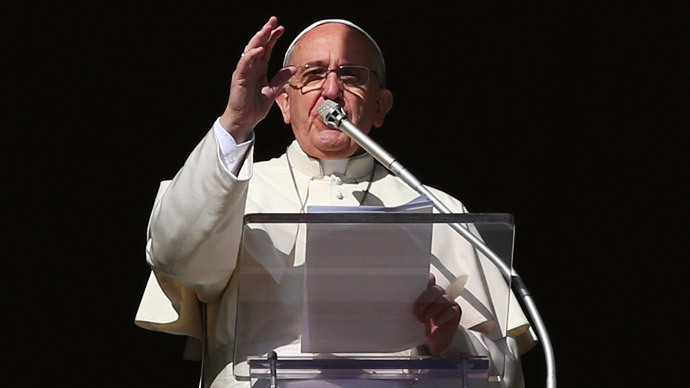Racist expression is a politician’s human right - equalities watchdog

Politicians should not be silenced from saying things that “could be construed as racist” if debating issues of national importance such as immigration, Britain’s equalities watchdog says.
New legal guidelines on freedom of expression in Britain also defend media organizations’ right to publish drawings of the Prophet Mohammed if they consider them to be in the wider public’s interest.
However, the guidance also contains a series of cautionary words. Of particular note, is the watchdog’s warning to religious schools over their handling of sensitive issues such as gay marriage.
The Commission says faith schools have a legal right to teach students their traditional beliefs on issues such as same-sex marriage and sexuality, but could face allegations of discrimination if their approach to such subjects is deemed insensitive or inappropriate.
The equalities watchdog stresses the clarifications set out in its new guidelines are necessary to address confusion over ambiguous legislation in the aftermath of the Paris terror attacks.
Human rights group Liberty says citizens’ right to freely express themselves is crucial to any robust democracy.
The exchange of diverse ideas assists in informing political debate and is vital to public transparency and accountability, according to the charity.
Rights & responsibilities
Citizens’ right to freedom of expression is defined under Article 10 of the European Convention on Human Rights. It includes the right to hold opinions, and to process and disseminate information without interference from the State.
While political expression is afforded special protection under Article 10, the Convention emphasizes free expression carries with it a series of “duties and responsibilities.”
The Equality and Human Rights Commission’s new guidelines suggest there is often “a fine line” between remarks that are protected under human rights legislation and those which could be considered to incite hatred.
But it argues that minimal interference with journalism, commentary on public issues and political campaigning can be justified, particularly in the midst of electoral campaigns.

The equalities watchdog suggests that racist commentary, which is intended to inform rather than be offensive, often attracts greater protection than other discriminatory forms of speech.
“Beliefs, opinions and ideas – even deeply-held beliefs – cannot be immune to criticism or satire. Democracy depends on people being free to express, debate and criticize opposing viewpoints,” the Commission’s guidelines say.
Liberty’s perspective echoes that of the Commission in this context. The human rights charity argues the right to freedom of expression – while subject to limitations – carries little weight unless it is evenly applied across all sectors of society.
The charity stresses the right to protect “both popular and unpopular expression – including speech that might shock others” should be upheld. It adds “a free press” and protected journalistic sources are crucial to free speech.
Freedom of bias or freedom of expression?
The Commission’s new guidelines emphasize that British courts generally uphold citizens’ right to freedom of expression on the grounds free speech should not be restricted purely because others find it insulting or offensive.
It stresses, however, that context is vital and the rights of citizens must be balanced carefully.
The equalities watchdog suggests intolerant expressions of a perspective some may find offensive is less likely to be viewed as “hate speech” if aired as part of a public debate or speech where divergent views are exchanged and challenged.
But it emphasizes remarks about minority communities blaring through a megaphone in front of a volatile mob is more likely to be considered incitement of hatred than a few privately uttered comments.
The Commission’s guidance acknowledges that many Muslims in Britain and elsewhere are deeply offended by depictions of the Prophet Mohammed published in the satirical magazine Charlie Hebdo.
But the watchdog says it was unlikely that any publisher would have been prosecuted for publishing such content if they believed they were doing so in the public interest.
In the wake of the Paris shootings, states across the globe saw a frenzy of debate broaching the sanctity of free speech.
Pope Francis said religious beliefs should be treated respectfully so that divergent faiths are not ridiculed or insulted.

Sharif Nashashibi, a political analyst on Arab affairs, argued at the time every right is bound by limits.
He added the mainstream media in the West was reluctant to adequately investigate the “the causes of radicalism” that had led to the Paris atrocities.
An editorial in the New York Times said, “It is absurd to suggest that the way to avoid terrorist attacks is to let the terrorists dictate standards in a democracy.
“This is also no time for peddlers of xenophobia to try to smear all Muslims with a terrorist brush.”












